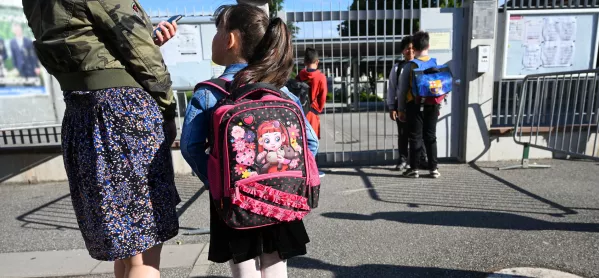The £650 million in extra school funding earmarked to help pupils catch up on teaching time lost due to the coronavirus crisis “is unlikely to prevent a widening of the learning gap between children from poor backgrounds and other pupils”, according to the Education Policy Institute (EPI).
Tes previously revealed that the money is not being targeted at schools serving more disadvantaged pupils.
And today, the government has confirmed that the £650 million will be based purely on the number of pupils attending a school, with a 1,000-pupil secondary school receiving £80,000 and a 200-pupil primary receiving £16,000.
The EPI says this means the money is unlikely to achieve the government’s aim or to help in the wider ambition to “level up” people’s life chances.
EPI chairman David Laws said: “The additional £650 million for school catch-up work is badly targeted and is unlikely to prevent a widening of the learning gap between children from poor backgrounds and other pupils.”
Poorer children are “much more likely to be suffering serious learning loss and to be falling badly behind”, he said.
Background: Exclusive: £650m catch-up cash not targeted at poor
Read: Heads ‘confused’ over £650m DfE Covid-19 catch-up fund
Learning gap: Exclusive: Covid-19 ‘widens achievement gap to a gulf’
“However,” Mr Laws said, “the government has decided to allocate the same amount of catch-up funding to a school in a highly affluent area as to a school in the poorest part of the country.
Coronavirus: Catch-up funding not targeted at schools in poorer areas
“It is difficult to see the rationale for such a decision, and it means that schools where as many as half or more of children are in poverty won’t have the extra resources they need to pay for interventions that we know can make a difference.”
He added: “At a time when social mobility was already in danger of stalling, and with Covid significantly worsening the learning outlook for poor children, today’s decision could prove to be a costly mistake.”
The warnings come as Tes has been publishing a series of Closing the Covid gap reports on the challenges faced by schools in helping vulnerable and disadvantaged pupils to catch up as they come out of lockdown.
The Department for Education has said that headteachers can decide how best to use their schools’ catch-up allocation to tackle the impact of lost teaching time on their pupils, but are “encouraged to spend it on evidence-driven approaches including small group or one-to-one tuition, support over the summer, or additional support for great teaching”.
The £650 million is in addition to the £350 million being spent on the National Tutoring Programme, which will involve tutors and coaches working with disadvantaged pupils.




